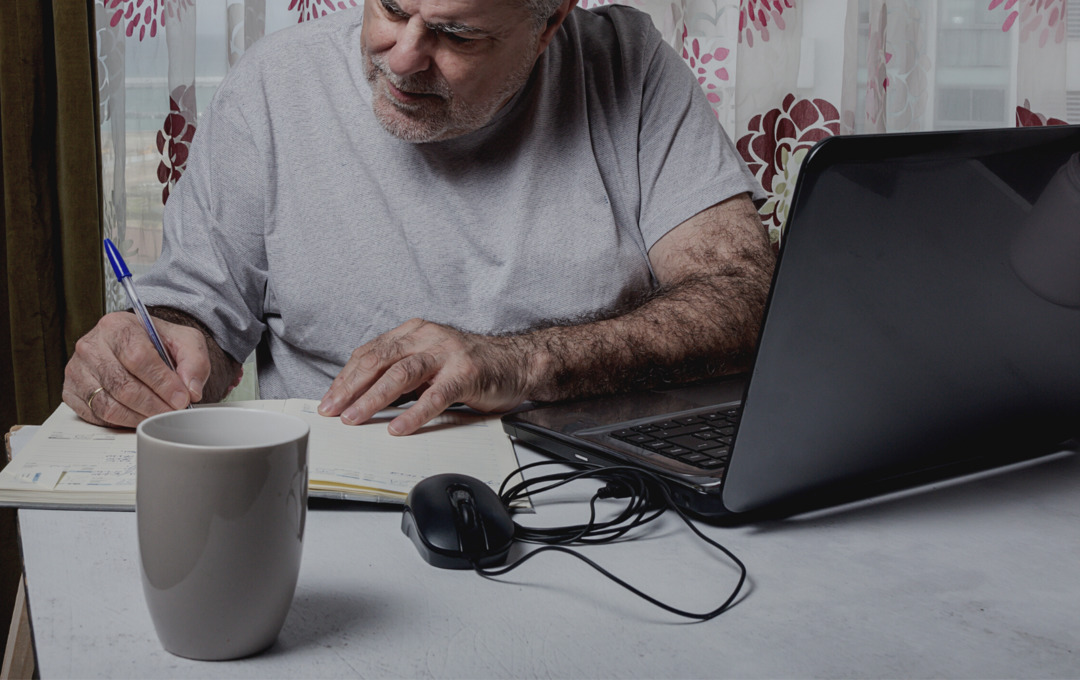LEARNING FROM COVID: Tackling inequality at work

During Covid, we had to question how we worked and jump into a much more digitally focused employment landscape. In the latest blog in our Learning From Covid series, PACE key worker Lauren Quinn discusses how the pandemic exposed deep inequalities in work, and the need to make sure we're not leaving people behind in the rush to get "back to normal".
For many, the pandemic caused a seismic change in what work looked like and what was possible or accessible. Two years on, we’re seeing a return to pre-pandemic ways of working – people are coming back to offices and service roles – but we can’t forget the inequalities that have been starker than ever since March 2020.
Since July, I’ve been working in the PACE 50+ service, set up to handle the support people facing redundancy and unemployment as a result of the pandemic. We’re wrapping up our PACE work now, but in the last year we’ve been offering tailored one-to-one support to help people navigate the chaotic employment landscape.
Even if the emergency measures which exposed these issues are no longer in place, the underlying problems still remain – inequality, instability, lack of understanding and lack of support. Covid didn’t create these problems, it just made them harder to ignore, and if we don’t keep tackling them head on, people will continue to face poverty, unemployment and insecurity.
One thing that really struck me, as employment became more and more dependent on the capacity to work from home, is how many assumptions we make about what’s possible for people. It’s easy to fall into the trap of looking for a one-size-fits-all solution – and what was clear from the outset was that for a lot of employers, that one size doesn’t take into account the complex ways people’s lives actually work.
There are all sorts of often invisible things that you need to work from home. Many of us have had the experience of suddenly having to manage pets, small children or other interruptions in our living spaces – so much so it’s been a standing joke – but what if your home isn’t a safe place to be, or if you’re one of the thousands of people working without a stable address?
We also often overlook what working from home demands in terms of money, digital access, and skills that might never have been needed in your working life before. I’ve worked with people in their 40s and 50s who’ve been working their whole lives – in kitchens, in warehouses, in practical jobs – who have been expected overnight to get 100% fluent with using computers for everything. It isn’t fair or reasonable to expect that from people, some of whom have rarely if ever used computers in their lives up to this point, but the fact is that when it became necessary to digitise a lot of work, rather than being offered support to develop those skills, some people were just pushed out of the workforce.
Digital inequality is also a marker of general inequality. In the rush to build digital remote access, a lot of organisations overlooked how expensive digital access and skills can be. Through our partnership with Connecting Scotland, we’ve been able to get people hooked up with computers and free WiFi, but where people can’t afford to pay for those things out of pocket, they’re cut out of huge areas of life. Obviously with the pandemic forcing a lot more of us to work from home, that’s been more pronounced during the pandemic, but digital exclusion wasn’t new in 2020 and it won’t disappear with Covid restrictions. More and more vital services – including access to benefits and financial support – are increasingly reliant on the resources and skills for at-home internet use.
There truly is never going to be a one-size-fits all solution that works for everyone, and I really hope that if the pandemic has taught us anything, it’s the importance of flexibility and empathy. One of the unique things about Cyrenians’ way of working is that we work really hard to meet people where they are, rather than expecting them to constantly struggle to meet arbitrary expectations. To build inclusive support, it isn’t enough to expect people to push themselves to the limit to get their basic needs met – we need to meet people where they are. It’s worth rearranging meetings to suit people’s commitments. It’s worth building in flexibility and letting people define ways of working that work for them. It’s worth giving people to learn without judgement. And it’s always worth asking what people need, and genuinely listening to the answer.
The adaptations people have put in place over the last couple of years of chaos have proved that we have the capacity to meet people’s needs in much more flexible and imaginative ways than we realised. But in the scramble to get “back to normal,” we need to make sure that we’re not leaving people behind, or forgetting those who were left without work or support during the pandemic. We can and must work towards a working world that doesn’t leave people in instability, poverty or homelessness rather than make minor changes to help them thrive.